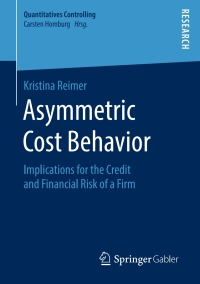Question
As indicated in the chapter, return on investment (ROI) is well entrenched in business practice. However, its use can have negative incentive effects on managerial
As indicated in the chapter, return on investment (ROI) is well entrenched in business practice. However, its use can have negative incentive effects on managerial behavior. For example, assume you are the manager of an investment center and that your annual bonus is a function of achieved ROI for your division. You have the opportunity to invest in a project that would cost $630,000 and that would increase annual operating income of your division by $64,000. (This level of return is considered acceptable from top managements standpoint.) Currently, your division generates annual operating profits of approximately $690,000, on an asset base (i.e., level of investment) of $4,400,000. Required: 1. What is the current return on investment (ROI) being realized by your division (i.e., before considering the new investment)? 2. What would happen to the near-term ROI of your division after adding the effect of the new investment? 3. As manager of this division, given your incentive compensation plan, would you be motivated to make the new investment?
Step by Step Solution
There are 3 Steps involved in it
Step: 1

Get Instant Access to Expert-Tailored Solutions
See step-by-step solutions with expert insights and AI powered tools for academic success
Step: 2

Step: 3

Ace Your Homework with AI
Get the answers you need in no time with our AI-driven, step-by-step assistance
Get Started


